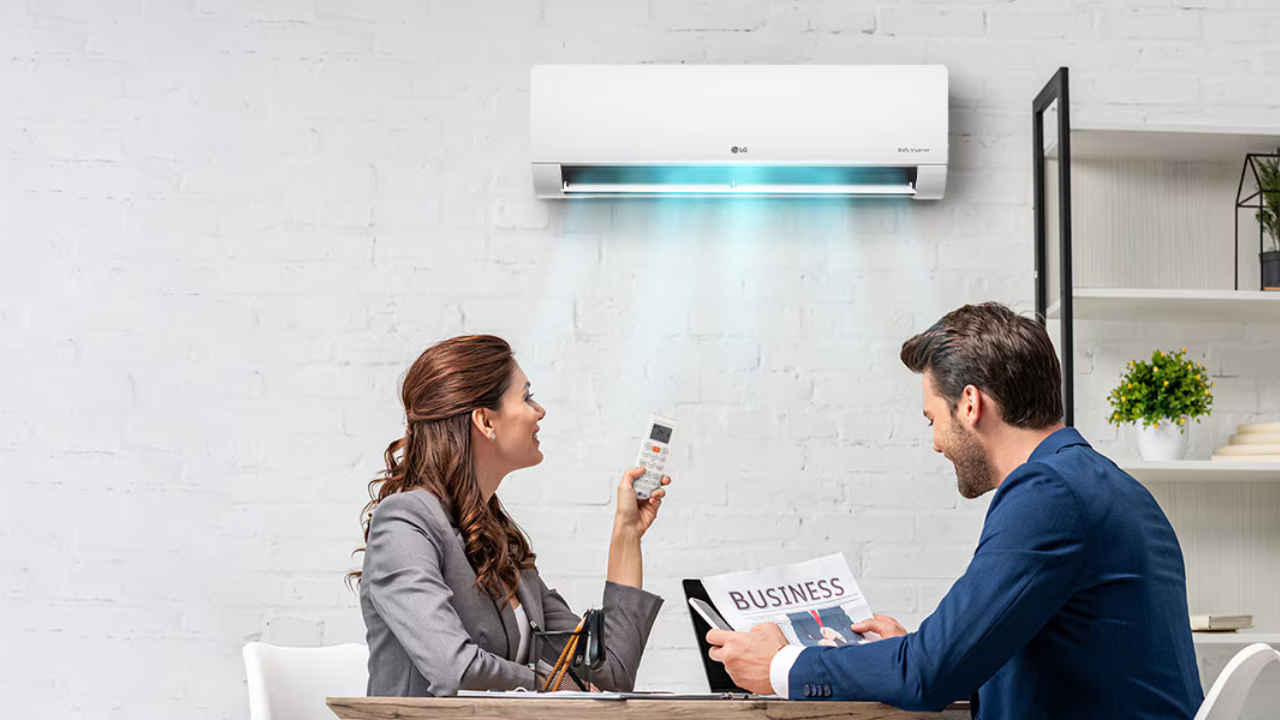

Buying an air conditioner in 2025 is a lot like picking a streaming service – there are too many options, each promising to be the best, and you just want something that cools your room without making you regret your purchase a month later. With rising temperatures and manufacturers stuffing their machines with all sorts of futuristic technology, it’s easy to get distracted by the bells and whistles. But before you go swiping your card on the latest, most expensive AC with features that sound mysterious and funky, here’s what you should really be looking at.
If you’re still stuck in the ‘non-inverter ACs are cheaper’ mindset, it’s time for a wake-up call. Inverter ACs have taken over the market, and for good reason. Unlike their older counterparts that switch on and off repeatedly, inverter ACs adjust their compressor speed dynamically. This means they run more efficiently, consume less power, and maintain a stable room temperature. On the downside, the PCB used in inverter ACs can be expensive to repair when the time comes. Also, in peak summers when your AC runs at full loads – both options consume similar energy. It is in monsoons and non-peak seasons that inverter ACs do the saving. Yes, they cost more upfront, but we’d say they are a smarter choice.
If your AC is too small for your room, it’ll keep running non-stop and barely cool the place. Too big? It’ll cool too fast without dehumidifying properly, leaving you with that weird, sticky feeling that no one likes. The golden rule? A 1-ton AC works for rooms up to 120 sq. ft., 1.5-ton handles 120-180 sq. ft., and for anything bigger, go for a 2-ton unit. Of course, if your room is a glasshouse or gets direct sunlight all day, size up accordingly.
That five-star sticker on ACs matters. Energy efficiency ratings from the Bureau of Energy Efficiency (BEE) give you a good idea of how much electricity your AC is going to gulp down. A five-star AC in 2025 is way better than a five-star AC from five years ago, thanks to upgraded efficiency standards. But there’s a catch – higher star ratings mean higher upfront costs. If you use your AC all day, investing in a five-star unit pays off in the long run. If you just need it for a few hours at night, a three-star model might be enough. Just try not to go below that.
Like everything modern, ACs also now flaunt AI which is used for auto-climate adjustment by also factoring in user preferences, and, if marketing teams are to be believed, the ability to predict the weather before it happens. Realistically, you should be looking for features that actually improve cooling efficiency. Dual-inverter compressors provide better speed control, while 4D air circulation ensures uniform cooling. If you live in a humid area, look for dehumidification modes, and if your city feels like a furnace in May, high ambient cooling ensures the AC doesn’t give up when temperatures cross 50°C.
A decade ago, turning on your AC with a remote felt futuristic. Now, if your AC doesn’t come with Wi-Fi, voice control, or app integration, is it even worth it? Smart ACs let you control settings through your phone, schedule cooling times, and even respond to voice assistants. But are these add-ons truly worth it? If you’re a tech enthusiast or like adjusting temperatures without moving an inch, smart ACs are worth it. Our favourite smart feature is the ability to track energy consumption and the option to set monthly targets.
Given that outdoor air quality is getting worse by the day, ACs have started doubling up as air purifiers. Features like PM2.5 filters, ionizers, and UV sterilization are now becoming standard in mid-range models. If you live in a pollution-heavy city, these can actually make a noticeable difference. However, if you already have a standalone air purifier, you can probably skip paying extra for built-in filtration. These purifying filters also warrant timely replacement which adds to the maintenance cost.
Gone are the days when we didn’t care about what our ACs were pumping into the atmosphere. Now, refrigerants are a big deal. R32 and R290 are eco-friendly options, offering better efficiency and lower global warming potential. If your AC still uses R22, it’s time for an upgrade, because that’s as outdated as a CRT television in 2025.
For someone who grew up sleeping in air coolers, ACs have always felt quiet. But having tasted the convenience of Inverter ACs, its hard to go back. These are generally quieter than non-inverter models, and higher-end units even offer noise-cancellation technology. If you’re a light sleeper, check the decibel (dB) ratings before buying. Anything under 40 dB is considered whisper-quiet.
You don’t need to break the bank to get a good AC, but going too cheap will cost you in electricity bills and repairs. Mid-range models from reliable brands often offer the best balance of features, efficiency, and durability. If you can afford it, premium models with better cooling tech and lower energy consumption will pay off in the long run.
While new brands pop up every year, some names have been in the AC game long enough to prove their reliability. LG, Daikin, Haier, Samsung, Blue Star, Voltas, and Hitachi consistently offer well-built, efficient units with good service networks. Lesser-known brands might be tempting for their aggressive pricing but a gamble is involved.
The last thing you want is to be stuck with a brand that treats after-sales support like an optional extra. You should also look for brands that offer great warranties. A good warranty can save you thousands in repair costs. Look for at least a 5-year warranty on the compressor and a 1-2 year comprehensive warranty. Some brands even offer 10-year warranties on compressors, which is great if you plan to use the AC for the long haul.
So these are some tips that should help when you are deciding on your new AC.